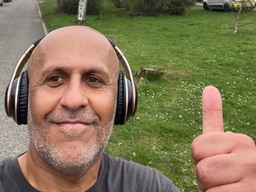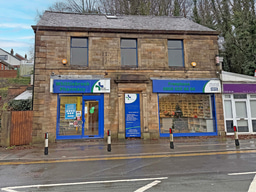‘Build a team of leaders’

For Medicine Clinic Pharmacy’s Mitesh Patel, he told an audience at The Pharmacy Show last week (October 12) how success “didn’t really happen” in his first 15 years as an owner.
But now, after changing his pharmacy model around Covid, he operates 14 branches on the south coast and is expanding into the Midlands and northeast.
Along with Orchard Pharmacy’s owner Raza Ali, who operates nine pharmacies, they shared some of the key things they’ve learnt about how to expand their portfolios.

Location and Google trends
Patel said the location is an “obvious” element to think about first, but adds researching what the local demographics are, what GP surgeries are near and what the “local competition” is like is necessary.
Ali “deliberately” tries to buy a pharmacy in an area he’s already operated and suggested researching what services are being done in that area too, adding private services are “the most important thing in pharmacy right now”.
“Maybe do a survey of the local area see what services are not being delivered and could work,” Ali said. “In affluent areas, lots of people would pay for healthcare.”
He said looking at Google trends and what people in that area are searching for online can “give you an idea what people are looking for”.
“Maybe you might find that actually, I don't want to buy a pharmacy at the minute. What you could do is approach the pharmacy down the road and say, ‘I've got the data, here’s the clinic I want to run—can I rent a room from you?’”
Processes
Ali stressed creating “processes that work” at your first pharmacy too, as this helps to replicate workflows across all other branches.
He’s moved staff around his pharmacies and said building these processes has helped to identify whether a staff member has been the one “carrying the pharmacy” or not.
Read more: Buying + Selling: Indie expands, Day Lewis warehouse and ex-Lloyds music venue
“You want to have really good standard operating procedures (SOPs), really good flows, really good training so anybody working in one branch can go to another branch and know what's going on.”
.jpg)
Franchise model and LPCs
Ali also spoke about how pharmacies should move towards franchise models.
“My business model is slightly different. Whenever I open the branch, I get the pharmacist to become a part-owner.”
He said it means that part-owner “gets something back” and “helps you get the best out of people” as they receive more than just their salary back from work.
Read more: 'Don’t edit yourself’: Tips from women pharmacy entrepreneurs
Patel pointed out how the local pharmaceutical committees (LPCs) are just as essential as estate agents to network and see what pharmacies ay come onto the market soon.
“Go to your LPCs and use a direct approach,” Patel said. “You’d be surprised how many people are thinking about it [selling] or plant the seeds so they can approach you when they are looking to retire.”
Read more: ‘One Botox appointment is equal to 300 items a day’
Ali added: “The LPC is really key to this. If you don't venture forward and be involved in that network, you're not going to be able to know who is retiring.
“LPC events are really good at this, because there are older pharmacists, and I say that with bit of care, wedded to that process. A lot of younger pharmacists are not really involved in LPCs.”
Staff
Ali suggested thinking creatively about recruiting staff, such as having two businesses share an employee.
“Why don't we share our delivery driver? You're paying 20 grand a year. I'll pay 20 grand a year. Work together and save 20 grand. It's an idea, right? It just seems a little bit odd to us because we don't do it.”
Patel highlighted having the right staff behind the scenes is just as essential too.
Read more: ‘Most pharmacies are not really differentiating’
“You've got to have someone in the office who knows HR,” he said. “There are accountants out there that will help you with cash flows and projections and really tell you, ‘is this worth doing or not?’
“Get help and study the business properly before just going and buying. [It’s the] same with solicitors. Build your little team, your own industry leaders.”
It comes as C+D reported from The Pharmacy Show on how Botox boosts private services, how behavioural economics in advertising and upselling can grow your pharmacy, and how five women pharmacy entrepreneurs deal with challenges in the industry.







Please sign in
If you are a registered user on C+D Community, please sign in